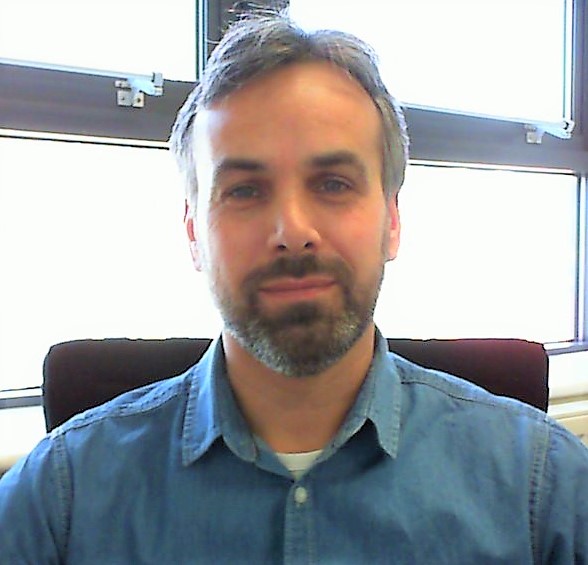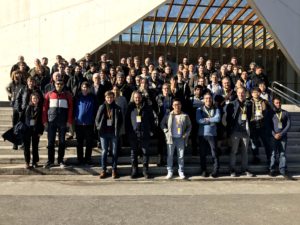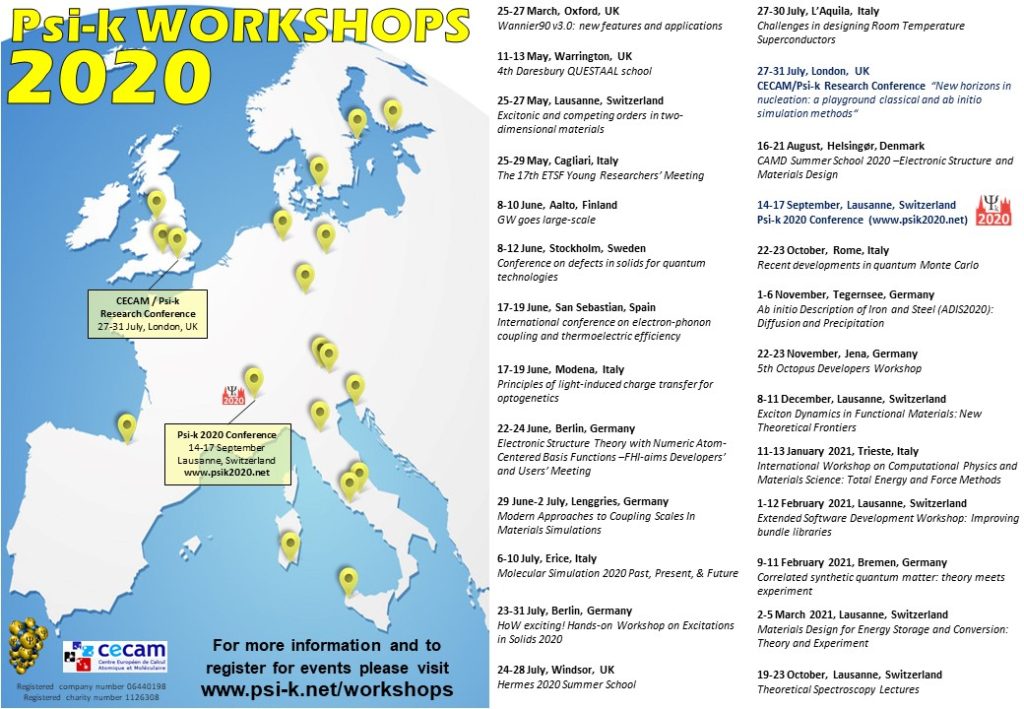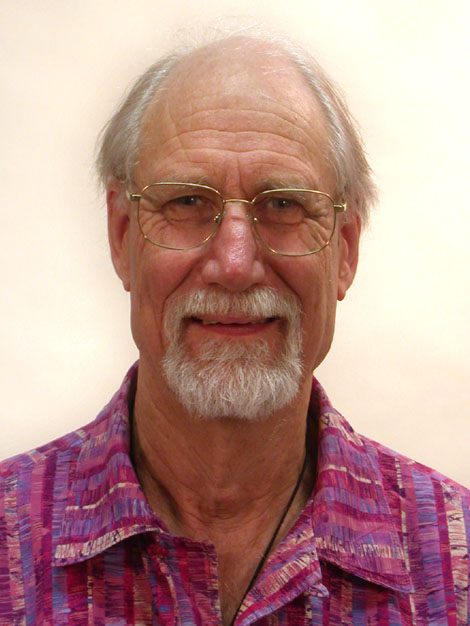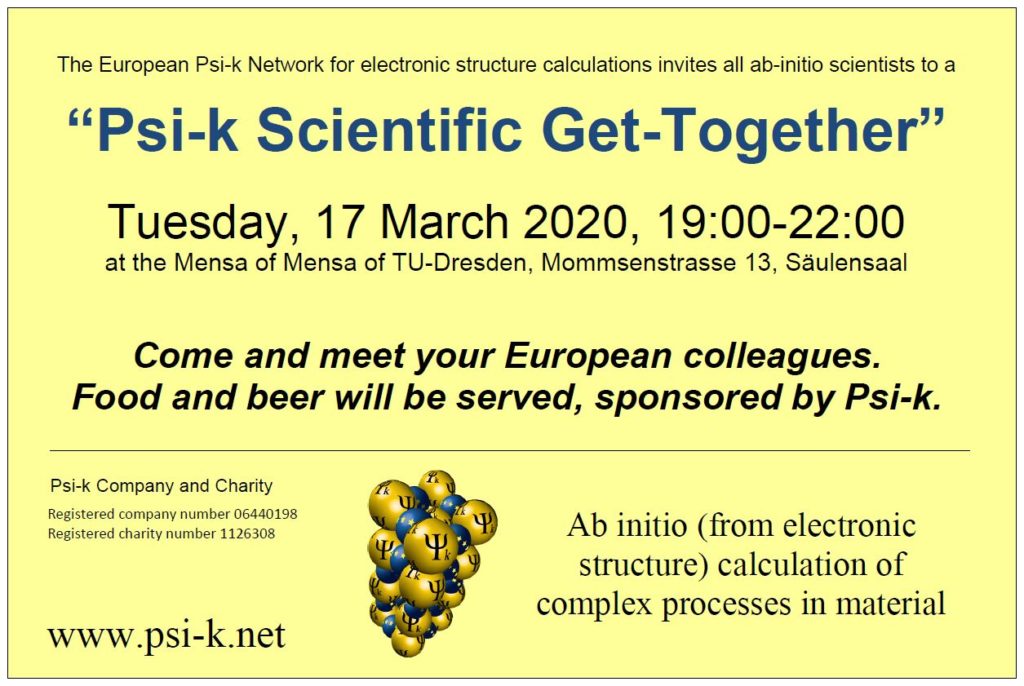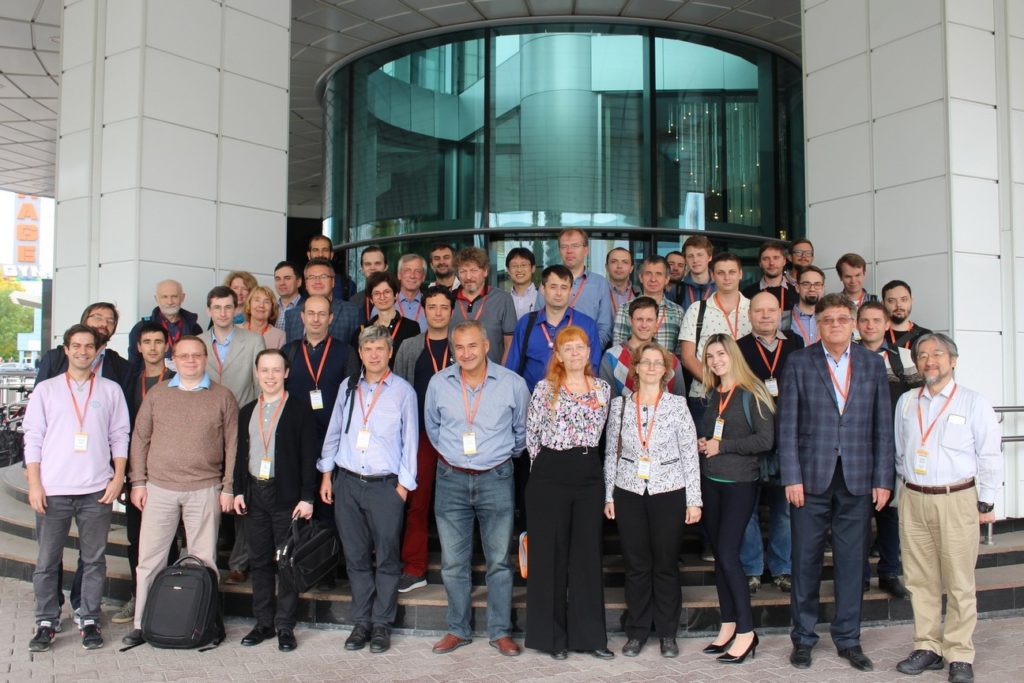SwissTech Convention Centre, Lausanne, Switzerland
Monday 14 – Thursday 17 September 2020
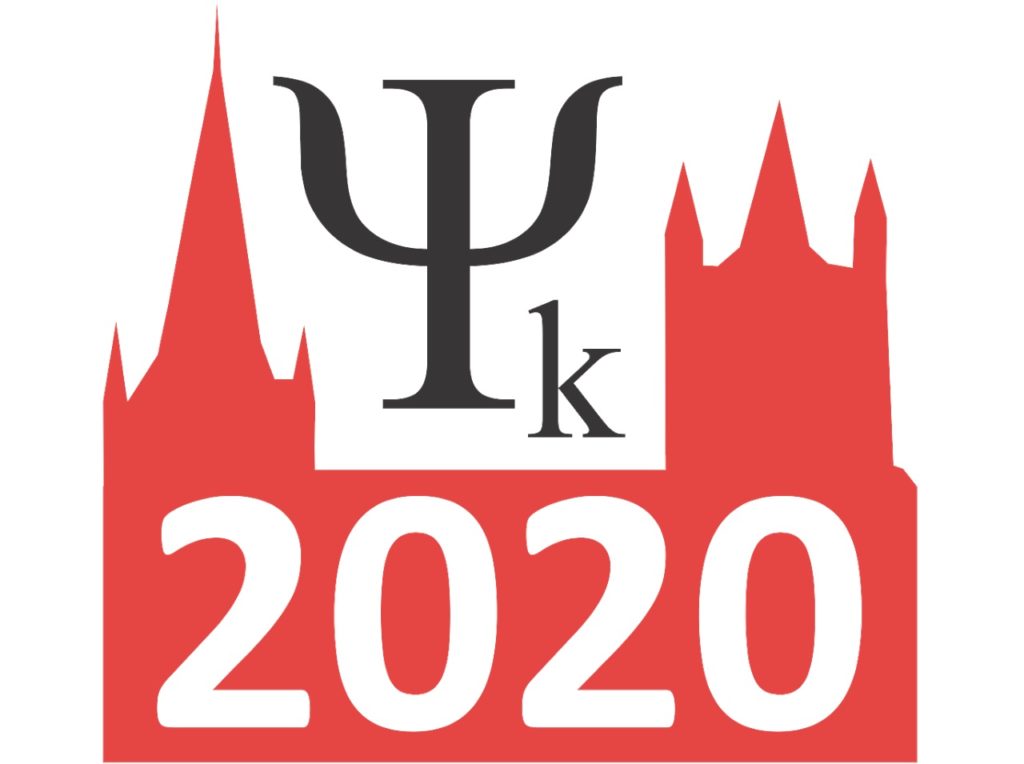
IMPORTANT NOTICE
With the current COVID-19 situation causing the cancellation of major events and conferences around the world, there is now significant uncertainty regarding Psi-k 2020 as well. Although we are still hoping that the conference can take place as planned, we are following the evolution of the situation closely and expect to have a clearer idea in the next few weeks regarding whether to maintain the event, or whether to postpone it to next year.
In order to avoid incurring any potential cancellation costs, we recommend that you refrain from making any travel plans for the time being.
The registration system has been suspended until a final decision is made — if the conference is maintained this year, all registration deadlines will be extended. Participants who had already registered will be contacted once a final decision is made.
Thank you for your patience in these exceptional time, and stay safe!
This is the largest event worldwide in first-principles simulations; it is held every 5 years (the last two editions, in Berlin in 2010 and in San Sebastian in 2015, had more than 1000 participants each), and with 7 plenary talks, 140 invited talks, and 170 contributed talks it promises to be the most exciting, defining event in the field.
Early-bird deadline is May 1, 2020 – one can register right away, and submit an abstract later (by May 1, 2020, to be considered for a contributed talk, or by Aug. 1, 2020, for a poster). All information – including registration, program, accommodation, and childcare – is available at https://www.psik2020.net. Continue reading Registration for Psi-k 2020 is now open!!! →


